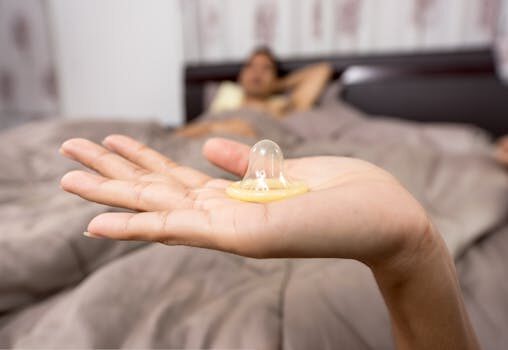How often should you have sex to get pregnant?

When couples decide to start a family, understanding the best timing for intercourse becomes critical. Many wonder, how often should you have sex to get pregnant? This article will explore optimal timing, frequency, and tips to enhance fertility.
Knowing when to have sexual intercourse can significantly increase the chances of conception. Factors such as ovulation, menstrual cycles, and overall reproductive health play a vital role in this journey.
How often should you have sex to get pregnant?
To maximize the chances of conception, couples are often advised to engage in sexual activity every 2 to 3 days. This regular frequency ensures that sperm is available during the fertile window. The fertility window typically spans about 6 days, ending on the day of ovulation.
It’s essential to understand that frequent intercourse does not harm sperm quality. In fact, studies have shown that having sex more frequently can increase the likelihood of pregnancy. Couples should aim to maintain a balance between intimacy and the pressure of trying to conceive.
Another important aspect is the timing of intercourse relative to ovulation. Engaging in sexual activity in the days leading up to ovulation can significantly enhance the chances of conception.

When is the best time to have sex to get pregnant?
The best time to have sex for conception is during the fertile window, which includes the day of ovulation and the five days leading up to it. Tracking ovulation becomes crucial at this stage.
Women can track their ovulation through various methods, including monitoring their cervical mucus, basal body temperature, and using ovulation predictor kits. These tools can help pinpoint the most fertile days.
- Cervical Mucus: During ovulation, cervical mucus becomes clearer and more stretchy, resembling raw egg whites. This is a natural indicator of fertility.
- Basal Body Temperature: A slight increase in temperature can indicate that ovulation has occurred, suggesting the optimal time for sex.
- Ovulation Predictor Kits: These kits detect hormonal changes that signify ovulation, allowing couples to time intercourse effectively.
Couples are encouraged to have sex on the days leading up to ovulation and on the day itself to maximize chances of success. Maintaining a relaxed and enjoyable atmosphere during this time can also positively impact the overall experience.
How long does it usually take to get pregnant?
The time it takes to get pregnant can vary considerably between couples. On average, most couples conceive within a year of having regular unprotected sex. This is generally defined as having intercourse every 2 to 3 days.
However, various factors can influence this timeline, including age, health conditions, and reproductive health. Women over 35 may experience delays in conception, and consulting a healthcare provider may become necessary if pregnancy does not occur within 6 months of trying.

Understanding one's menstrual cycle is also vital. Couples should familiarize themselves with the cycle's phases to pinpoint their fertile days. Keeping track of ovulation signs can significantly aid in this process.
What does 'regular sex' mean?
'Regular sex' typically refers to having intercourse consistently, ideally every 2 to 3 days. This does not mean couples need to adhere strictly to a schedule, but rather maintain a frequency that ensures sperm is present during the fertile window.
It's important to remember that intimacy should be enjoyable. Couples may find that scheduling intercourse can sometimes induce stress. A more relaxed approach can foster intimacy and increase the chances of conception.
- Frequency: Having sex every 2 to 3 days is ideal for optimum chances of conception.
- Relaxed Environment: Couples should strive to create a comfortable atmosphere to reduce pressure.
- Focus on Connection: Maintaining emotional intimacy can also help improve overall chances of conception.
How many days after your period can you get pregnant?
Pregnancy can occur if sexual intercourse happens around the time of ovulation, which is typically about 14 days before the next period begins. For women with regular menstrual cycles, this means the fertile window generally opens about a week after the period ends.
However, cycle lengths can vary, and ovulation may not always occur at the same time each month. Therefore, tracking individual cycles becomes vital for understanding personal fertility patterns.

In some cases, sperm can live inside a woman's body for up to five days, making the days immediately following menstruation potentially fertile if ovulation occurs shortly thereafter.
Is it possible to have too much sex if you’re trying to conceive?
Many wonder if having too much sex can negatively impact the chances of conception. The good news is that frequent intercourse is generally not harmful. Instead, engaging in sexual activity more often can actually enhance the likelihood of pregnancy.
Research indicates that there is no detrimental effect on sperm quality with increased frequency. It is important, however, to ensure that the experience remains positive and not pressured, as this can lead to stress that may hinder conception.
Ultimately, couples should focus on intimacy and connection rather than strictly adhering to a schedule. Enjoying the process can become a crucial factor in fostering a healthy and effective approach to conception.
What to do after sex to get pregnant fast?
After intercourse, many wonder what actions can help enhance the chances of conception. While there's no guaranteed method, there are several practices that couples can consider to increase their odds.

- Remain Lying Down: Staying in a lying position for about 15-20 minutes may help keep sperm close to the cervix.
- Avoiding Immediate Activity: Avoiding standing up or engaging in heavy activity right after sex can be beneficial.
- Healthy Lifestyle Choices: Maintaining a balanced diet, staying hydrated, and avoiding harmful substances can support overall reproductive health.
Additionally, couples should consider consulting a healthcare provider for personalized advice tailored to their unique circumstances. Understanding your body and its needs plays an essential role in the journey to conception.
Frequently Asked Questions About Timing for Conception
How often sex is required for pregnancy?
Generally, having sex every 2 to 3 days is recommended to increase the chances of conceiving. This regular frequency ensures the presence of healthy sperm during the fertile window. Engaging in sexual activity around ovulation further enhances the likelihood of conception.
How long should a woman keep sperm inside to get pregnant?
While there is no specific time frame that guarantees pregnancy, remaining horizontal for about 15 to 20 minutes after sex can help improve the chances by allowing sperm to reach the cervix more effectively. Ultimately, each woman’s body is unique, and understanding personal cycles can play a significant role.
How do I make sure my sperm stays inside?
To help ensure sperm remains inside, it’s advisable to avoid standing up or moving around immediately after intercourse. Staying in a lying position can assist in keeping sperm close to the cervix, potentially increasing the chances of conception.
How many hours of sex does it take to get pregnant?
There are no defined hours of intercourse required for pregnancy. Rather, conception relies on timing it correctly with ovulation. Engaging in sexual activity during the fertile window can lead to conception, regardless of the duration of intercourse itself.
